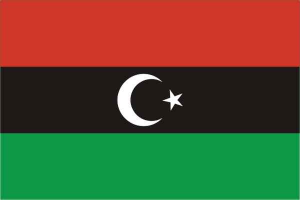Difference between revisions of "Language/Libyan-arabic/Grammar/How-to-Use-Have"
m (Quick edit) |
m (Quick edit) |
||
| Line 81: | Line 81: | ||
<hr>➡ If you have any questions, please ask them in the comments section below.<br>➡ Feel free to edit this wiki page if you think it can be improved. 😎 | <hr>➡ If you have any questions, please ask them in the comments section below.<br>➡ Feel free to edit this wiki page if you think it can be improved. 😎 | ||
==Related Lessons== | |||
* [[Language/Libyan-arabic/Grammar/Negation|Negation]] | |||
* [[Language/Libyan-arabic/Grammar/Pronouns|Pronouns]] | |||
* [[Language/Libyan-arabic/Grammar/Questions|Questions]] | |||
* [[Language/Libyan-arabic/Grammar/Plurals|Plurals]] | |||
* [[Language/Libyan-arabic/Grammar/Future-Tense|Future Tense]] | |||
* [[Language/Libyan-arabic/Grammar/How-to-Use-Be|How to Use Be]] | |||
* [[Language/Libyan-arabic/Grammar/Conditional-Mood|Conditional Mood]] | |||
* [[Language/Libyan-arabic/Grammar/Give-your-Opinion|Give your Opinion]] | |||
* [[Language/Libyan-arabic/Grammar/Adjectives|Adjectives]] | |||
{{Libyan-arabic-Page-Bottom}} | {{Libyan-arabic-Page-Bottom}} | ||
Revision as of 00:32, 2 March 2023
Hi Libyan Arabic learners! 😊
In this lesson, we will learn how to use the verb "have" in Libyan Arabic. We will look at the different forms of the verb and how it is used in different contexts. We will also look at some examples of sentences using the verb "have".
Introduction
The verb "have" is an important verb in Libyan Arabic. It is used to express possession, ownership, or a relationship between two people. It can also be used to express an action that has been completed. In this lesson, we will look at the different forms of the verb "have" and how it is used in different contexts.
Forms of the Verb "Have"
The verb "have" has three forms in Libyan Arabic:
- ḥāb (present tense)
- ḥib (past tense)
- ḥabu (future tense)
The verb "have" is conjugated differently depending on the subject of the sentence. For example, if the subject is a male, the verb is conjugated as follows:
| Person | Singular | Plural |
|---|---|---|
| I | ḥāb | ḥibna |
| You (m) | ḥib | ḥibtum |
| He | ḥib | ḥibū |
| We | ḥibnā | ḥibnā |
| You (f) | ḥibti | ḥibtum |
| They (m) | ḥibū | ḥibū |
| They (f) | ḥibtū | ḥibtū |
If the subject is a female, the verb is conjugated as follows:
| Person | Singular | Plural |
|---|---|---|
| I | ḥāb | ḥibni |
| You (m) | ḥib | ḥibtum |
| She | ḥib | ḥibat |
| We | ḥibnā | ḥibnā |
| You (f) | ḥibti | ḥibtum |
| They (m) | ḥibū | ḥibū |
| They (f) | ḥibtū | ḥibtū |
Examples
Here are some examples of sentences using the verb "have":
- Person 1: Ḥāb l-ḥadīda? (Do you have iron?)
- Person 2: Ḥib. (Yes, I have.)
- Person 1: Ḥāb l-ḥadīda? (Do you have iron?)
- Person 2: Ḥabu. (No, I don't have.)
- Person 1: Ḥāb l-ḥadīda? (Do you have iron?)
- Person 2: Ḥibna. (Yes, we have.)
- Person 1: Ḥāb l-ḥadīda? (Do you have iron?)
- Person 2: Ḥibat. (Yes, she has.)
To improve your Libyan Arabic Grammar, you can also use the Polyglot Club website. Find native speakers and ask them any questions!
➡ If you have any questions, please ask them in the comments section below.
➡ Feel free to edit this wiki page if you think it can be improved. 😎
